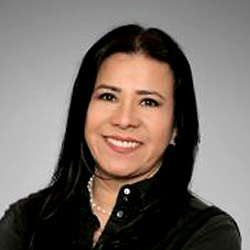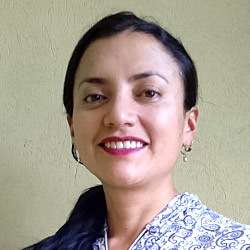
Iván Carrillo (CDMX, 1970). Journalist, editor and TV host specialized in science, health and the environment. He is co-founder and co-director of Historias sin Fronteras and En Común (podcast). He is a member of the 2016-17 generation of the MIT Knight Science Journalism Fellowship and is part of the National Geographic Society's global community of Explorers. As well, Ivan is the general editor of the Tec Review platform specialized in science, innovation and entrepreneurship and is the head of the Ibero-American Scientific and Cultural News (NCC) that is broadcast in 20 countries and three languages. Recently he launched the Aquatic Atlas program on YouTube dedicated to the conservation of the oceans. He has collaborated with the most important national media and his reports in Natgeo (LA) and Newsweek en Español have been recognized with the most outstanding awards in Mexico.

S. Lynne Walker is the president and executive director of InquireFirst and co-founder of Historias sin Fronteras, which was established in 2019 to provide reporting grants to science, health and environment writers in Latin America.
Lynne is a Pulitzer Prize finalist who spent much of her career reporting from Mexico, where she served as Mexico City Bureau Chief from 1992 to 2008 for San Diego, Calif.-based Copley News Service.
Her four-part series on a small Illinois town transformed by immigration, “Beardstown: Reflection of a Changing America,” was a finalist for the 2004 Pulitzer Prize in National Reporting. She was awarded the Maria Moors Cabot Prize from Columbia University Graduate School of Journalism in 2005 for her outstanding coverage of Latin America.
As executive director of InquireFirst, which she founded in 2016, Lynne continues to travel to Latin America to work with colleagues on new ways to produce in-depth reporting on science, health and the environment and conduct investigative reporting. She has instructed Spanish-language journalism workshops in Mexico, Guatemala, Honduras, Nicaragua, Costa Rica, Colombia, Paraguay, Bolivia, Argentina and Ecuador.
Lynne also launched Bajo la Lupa, a grant program to support investigative reporting in Latin America and she is the co-founder of En Común: Conocimiento en Voz Viva, a Spanish-language radio program that reports on science, health and the environment for rural and indigenous audiences in Mexico.

In the best style of genomic editing, I belong to the generation that had the gene for reporting implanted in our DNA. This condition, combined with a passion for exploring and telling different stories in everyday life, led me to discover science journalism. Since then and for more than 25 years, regardless of whether I am in the role of journalist, consultant, lecturer or unsuspecting mortal, each of my molecules seeks the science of the facts and gives voice to turn this, increasingly less strange specialization, into a valuable tool for journalism in Colombia, work that I passionately lead from the presidency of the Colombian Association of Journalism and Science Communication - ACPC, because everything has its science.

Mara Brugés Polo is a journalist with a master's degree in science communication and a specialist in Colombian economic history. As a journalist she worked for several years at the newspaper El Espectador, where she was in charge of coordinating the Revista del Campo. She was director of the Colombian Science and Technology News Agency (NOTICyT) -- a joint project between Colciencias (now Minciencias), the National Academy of Medicine, the University of Rosario and the Colombian Association of Journalism and Science Communication. For more than seven years, she was editor and correspondent for the Latin American edition of Audio Infos Magazine, a French publication specialized in hearing and language issues. She has participated as co-investigator in research projects and has been a consultant, teacher and lecturer. She currently works at the Universidad del Rosario, where she coordinates and develops scientific communication strategies.

Tania Orbe is a news correspondent in Ecuador for SciDev.Net, a UK-based science and development network. She collaborates with the digital magazine Plan V. Tania is a professor of journalism at the Universidad San Francisco de Quito and editor of the academic monographic series #PerDebate. She edits magazines, books and digital content. She is a lecturer and workshop leader in communication and scientific divulgation. She is a member of the Mexican Network of Science Journalists (Red MPC). In 2008, Tania created the scientific magazine E-Ciencia for The Armed Forces University (ESPE). She has worked as an editor of research, health, society and economy news at the newspaper Expreso and the magazine Vanguardia in Ecuador. She participated in the creation of Vanguardia in 2005.

Daniel Meza is a journalist and editor-in-chief of N+1 (nmas1.org), a popular science and technology news media organization for Latin America. Previously, his articles were published in Spanish-language media such as El Comercio, RPP, El Espectador, El Español, among others. In recognition of his work, he was awarded a grant to attend the 2019 World Conference of Science Journalists in Lausanne, Switzerland, as well as the 2019 Digital Path for Entrepreneurship and Innovation program of the International Center for Journalism (ICFJ) in Washington, USA. He studied journalism in Peru and completed a master's degree in International Relations at the University of Nottingham, UK. He founded the Association of Journalism and Science Communication of Peru (APCiencia).